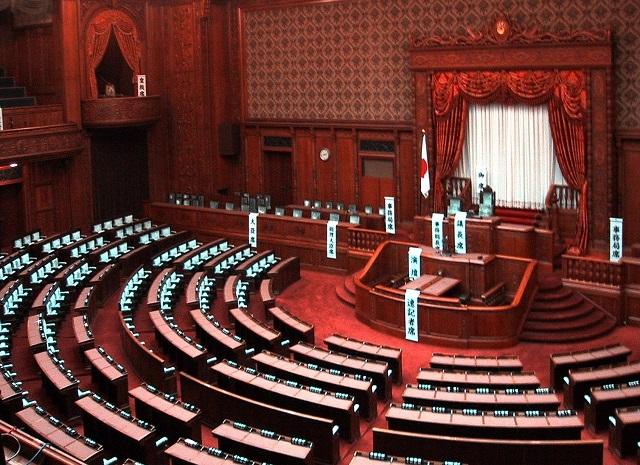Japan’s return to single-party dominance
Posted By Kevin Placek on July 14, 2016 @ 11:00

Japanese voters delivered a landslide victory to Prime Minister Shinzo Abe and the ruling coalition in an upper house election held on 10 July. While the outcome was never in doubt, the shift in the balance of power was decisive. The Liberal Democratic Party (LDP) won 56 of the 121 seats up for election, giving the party a total of 122 seats in the 242-seat upper house.
This marks the first time since 1989 that the LDP has held a single-party majority in both houses of the Diet. Even more remarkable, the LDP-Komeito coalition now meets the two-thirds supermajority necessary to revise the constitution with the support of a number of independents and minor parties. Meanwhile, the main opposition Democratic Party suffered its fourth successive loss since losing power in 2012, finishing with a mere 49 seats, 11 fewer than the previous election.
The election reaffirms Abe’s continued dominance in Japanese politics. Although the opposition parties were able to coordinate and field unified candidates against the LDP, they failed to provide a clear, positive message on the issue most important to voters: the economy. The policy debate was muted for most of the campaign with both sides largely talking past one another. The ruling coalition emphasised the tangible achievements of Abenomics, such as the increase in employment and corporate profits, while the opposition focused on the negative impact with the decline in consumption and the growing incidence of child poverty. The opposition parties were relentless in their criticism of Abe, frequently alluding to a hidden agenda and raising the spectre of revision of the war-renouncing peace clause of the constitution.
But with global financial markets still reeling after Brexit and policymakers nervous about a further appreciation of the yen, the political environment favoured the incumbent. Echoing Malcolm Turnbull’s call for calm heads and steady hands, Abe emphasised the need for political stability [1] and urged voters to avoid the chaos and dysfunction of the opposition. His victory shows that voters will reward stable, incremental progress even if they’re not entirely persuaded about the merits of the policies put forward. Opinion polls show that a majority of Japanese are increasingly dissatisfied with Abenomics [2] and remain deeply sceptical of the impact it’s having on their lives. But lacking a credible alternative, voters unsurprisingly opted for the status quo.
To his credit, Abe has demonstrated a canny ability to read the public mood, pushing his policy agenda forward in a pragmatic way, yet pulling back and refining his message when faced with a drop in public support. This is undoubtedly the case with constitutional revision. Japan’s constitution hasn’t been amended since it was first enacted in 1947. Abe and the LDP largely avoided discussing the issue during the campaign and the only mention in the LDP’s electoral manifesto was for consensus-building and debate within the parliament’s constitutional commissions.
Although the LDP can now clear the two-thirds supermajority in both houses with the support of other parties, the political hurdles for doing so remain high. Constitutional revision requires a national referendum and there’s little consensus, even among supporters, over what amendments to pursue. More importantly, a referendum would consume a lot of the government’s political capital and goodwill with voters. Exit poll results [3] found only 29.96% of voters in favour of amending the constitution with 36.0% opposed and 34.4% undecided.
Foreign policy didn’t figure much during the election but there are a number of important developments to watch. Following several recent international terrorism incidents involving Japanese victims, renewed efforts are underway [4] to enhance the Japanese government’s information-sharing and intelligence-gathering capabilities. The newly-formed International Counter-Terrorism Intelligence Collection Unit will be central to improving coordination and responsiveness. Implementation and operationalisation of last year’s security reforms [5] will enhance Japan’s strategic capabilities, although legal restrictions and public opinion will continue to act as a ceiling on those efforts. Russian President Vladimir Putin is expected to visit Japan towards the end of the year. There has long been speculation that such a meeting with Abe could result in a breakthrough with Japan’s longstanding territorial dispute with Russia over the Kuril Islands, although there are plenty of reasons [6] to doubt this.
The immediate priority for Abe, however, is revitalising the economy. The government is preparing to pass a massive fiscal stimulus [7] package that could exceed 10 trillion yen (AU$129 billion). But, nearly four years into Abenomics, the key to reviving the Japanese economy [8] remains the ‘third arrow’ of structural reform. A number of important economic items are expected to come up in the next parliamentary session, including ratification of the Trans-Pacific Partnership and legislation to correct the wage gap between regular and non-regular workers. Reforming the social security system and improving working conditions for women remain on the government’s agenda. But without a concerted effort to implement genuine productivity-enhancing reforms, Abenomics runs the risk of losing popular support before it ever meets any of its ambitious targets.
Abe’s term as LDP President expires in September 2018 and current reports suggest he won’t stay on beyond that date (although party rules could be amended). This election, therefore, gives Abe a relatively free hand for the remainder of his term. The lower house doesn’t need to be dissolved until December 2018 and the LDP remains unified behind his leadership. But faced with a strong parliamentary majority and a feeble opposition, the biggest challenge for Abe may simply be remaining focused on the economy and not overplaying his hand.
Article printed from The Strategist: https://aspistrategist.ru
URL to article: /japans-return-single-party-dominance/
URLs in this post:
[1] need for political stability: http://www.asahi.com/ajw/articles/AJ201606270029.html
[2] dissatisfied with Abenomics: http://www.japantimes.co.jp/news/2016/07/12/national/politics-diplomacy/50-poll-not-think-abenomics-will-lift-japan-economy/#.V4Vyhb7sduW
[3] Exit poll results: http://www.japantimes.co.jp/news/2016/07/11/national/politics-diplomacy/upper-house-election-exit-poll-highlights-divide-over-constitutional-revision/#.V4QeIL7sduV
[4] renewed efforts are underway: http://www.mofa.go.jp/files/000156881.pdf
[5] last year’s security reforms: https://aspistrategist.ru/reflecting-on-japans-new-security-policy/
[6] plenty of reasons: http://www.japantimes.co.jp/opinion/2016/05/11/commentary/japan-commentary/new-approach-russian-territorial-dispute/#.V4TtHr7sduX
[7] massive fiscal stimulus: https://next.ft.com/content/2d495a54-472e-11e6-b387-64ab0a67014c
[8] reviving the Japanese economy: http://www.eastasiaforum.org/2016/06/28/three-more-arrows-to-revive-the-japanese-economy/
Click here to print.